Are ICFs Good for Soundproofing Your Home?
Why Soundproofing Matters for a Peaceful Home
Picture this: a quiet evening, a favorite book in hand, only to be interrupted by the sounds of passing cars, barking dogs, or that ever-enthusiastic neighbor’s lawnmower. Noise pollution isn’t just a nuisance; it can genuinely affect your quality of life. Soundproofing solutions have come a long way, and Insulated Concrete Forms (ICFs) are rising stars in the soundproofing world. With their unique design and dense construction, ICFs can provide a level of noise control that conventional walls simply can’t match. But are they right for your home?
In this blog, we’ll explore how ICFs work as soundproofing materials, why they’re so effective, and how they stack up against other methods. Whether you're seeking tranquility in the city or just want to enjoy some peace and quiet, this guide will help you understand how ICFs can be the perfect solution.
What Are ICFs and Why Are They So Quiet?
ICFs, or Insulated Concrete Forms, are hollow foam blocks stacked and reinforced with steel, then filled with concrete to form solid, insulated walls. The result is an incredibly dense and effective building material that offers far more than just strength and insulation—ICFs are also known for their impressive sound-blocking abilities. But what’s the secret behind this noise-control superpower?
Key Features That Make ICFs Soundproofing Superstars:
- High Mass: The mass of the concrete used in ICF walls reduces sound transmission significantly. Noise struggles to pass through dense materials, making concrete a top choice for soundproofing.
- Layered Structure: ICFs have two layers of foam insulation that act as a buffer for sound. These layers trap sound waves before they can penetrate the wall.
- Solid Construction: When the concrete is poured and sets inside the foam forms, it creates a continuous, airtight barrier, which keeps outside noise out and inside noise in.
With the combination of high mass, layers of insulation, and an airtight design, ICF walls act as a powerful defense against unwanted sounds. If you’re tired of hearing the world outside—or sharing your own sounds with the neighborhood—ICFs can provide a quiet, private environment.
How ICF Soundproofing Compares to Traditional Wall Systems
So, how do ICF walls stack up against traditional building materials like wood and drywall? Let's break down the differences and see why ICFs are a top contender for anyone serious about soundproofing.
Traditional Wall Systems: The Noise Culprit
Typical wood-framed walls with drywall can allow noise to travel through gaps, joints, and even through the materials themselves. Traditional walls often rely on insulation like fiberglass or foam panels to block sound, which can be effective but doesn’t match the mass and density of concrete in ICFs. Here’s how they compare:
- Wood vs. Concrete Mass: Wood-framed walls lack the mass of concrete, making them more prone to sound transmission.
- Gaps and Joints: Traditional walls often have small cracks, which can allow sound to pass through more easily. ICFs eliminate this by providing a solid, continuous structure.
- Insulation Effectiveness: Although some insulation materials are good at absorbing sound, they can’t block it as effectively as the dense, multi-layered composition of ICFs.
Benefits of ICFs Over Traditional Walls for Soundproofing:
- Better Sound Transmission Class (STC) Rating: ICF walls generally have a higher STC rating, meaning they block more sound.
- Reduced Noise from Outside: ICFs can block up to 75% of external noise, while wood-framed walls might struggle to reach even 50%.
- Improved Privacy: ICFs prevent noise from traveling between rooms, which is ideal for home offices, media rooms, or nurseries.
In short, if quiet is what you're after, ICFs outperform traditional wall systems in almost every category. Their high mass and continuous construction make them the perfect solution for anyone serious about soundproofing.
Real-Life Applications: When and Where ICF Soundproofing Shines
When considering ICFs for your home, you might wonder if they’re overkill or if they’re really worth it for certain rooms or setups. Let’s take a look at where ICFs can make the most difference:
Ideal Spaces for ICF Soundproofing:
- Home Theaters: ICFs create a sealed, soundproof environment perfect for immersing yourself in movies and music.
- Bedrooms and Nurseries: ICF walls keep external noise out and ensure restful sleep for everyone in the household.
- Home Offices: Need to focus or take important calls? ICF soundproofing can transform your workspace into a peaceful, distraction-free zone.
- Urban Homes: If you live near a busy street, airport, or train line, ICF walls can dramatically reduce the sounds of traffic and city life.
Real Estate Value and Resale Potential:
In addition to creating a quieter, more comfortable home, investing in ICF soundproofing can also add value to your property. Soundproofing is a desirable feature for potential buyers, particularly in noisy areas. So, not only are you enhancing your quality of life, but you’re also boosting your home’s appeal and resale value.
Pros and Cons of ICF Soundproofing
Pros of ICF Soundproofing
- Significant Noise Reduction: Blocks up to 75% of outside noise.
- Improves Privacy: Prevents sound from traveling between rooms.
- Energy Efficiency: ICF walls are also fantastic insulators, lowering energy bills.
- Durability: Resistant to wear, natural disasters, and fire, adding extra protection.
- Increased Property Value: ICF homes are sought-after, particularly for their quiet, insulated environments.
Cons of ICF Soundproofing
- Higher Initial Cost: ICF construction can cost more upfront than traditional methods.
- Longer Construction Time: It requires specialized materials and skilled workers.
- Not Ideal for Retrofit Projects: ICFs are best suited for new construction rather than remodeling existing walls.
While ICFs might not be the cheapest or quickest soundproofing solution, the benefits often outweigh the initial investment, especially for long-term homeowners.
Contact Us for ICFs in Jacksonville, FL: Quiet Living Starts Here!
If you’re ready to experience the peace and quiet that ICFs can bring to your home, our team is here to help. At BuildBlock ICF, we’re certified ICF distributors serving Jacksonville, FL, and the surrounding areas. Our experts can answer your questions, help you choose the best ICF products, and guide you through the installation process.
Give us a call at
(833) 422-5625 to learn more about how ICF soundproofing can transform your space. From consultation to final installation, we’re committed to helping you build a home where peace and comfort reign supreme. Let’s get started on your journey to a quieter, more enjoyable home!
FAQs
Do ICFs eliminate all noise?
No, while ICFs significantly reduce noise transmission, they won’t block 100% of noise. However, they do offer a far quieter environment than traditional walls.
Are ICFs worth the cost for soundproofing alone?
If soundproofing is a priority, then yes. ICFs offer excellent soundproofing and also improve energy efficiency and durability, making them a valuable investment.
Can I use ICFs for specific rooms only?
ICFs are typically used for exterior walls, but they can be an excellent choice for basement walls, home theaters, or other areas where soundproofing is essential.
Are there alternative ways to soundproof ICF walls?
While ICFs are effective on their own, adding extra insulation or soundproofing drywall can enhance their performance.
Are ICFs eco-friendly?
Yes, ICFs reduce energy consumption and use materials that can be sustainable, making them a more eco-friendly choice compared to some other soundproofing options.
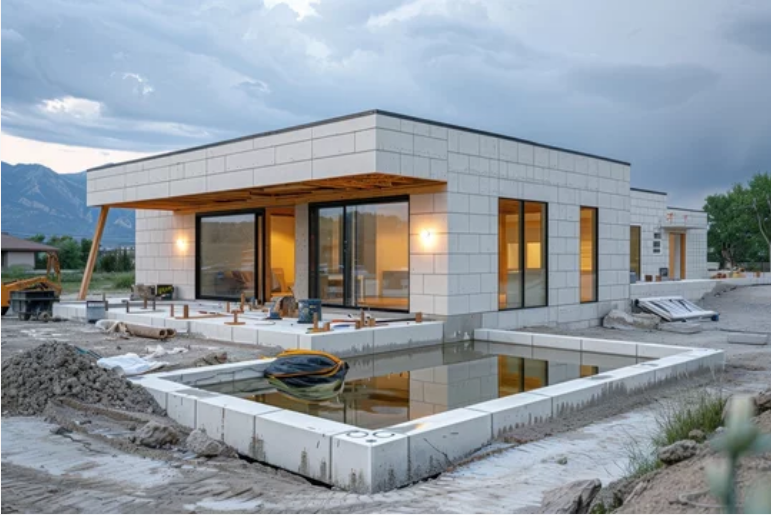
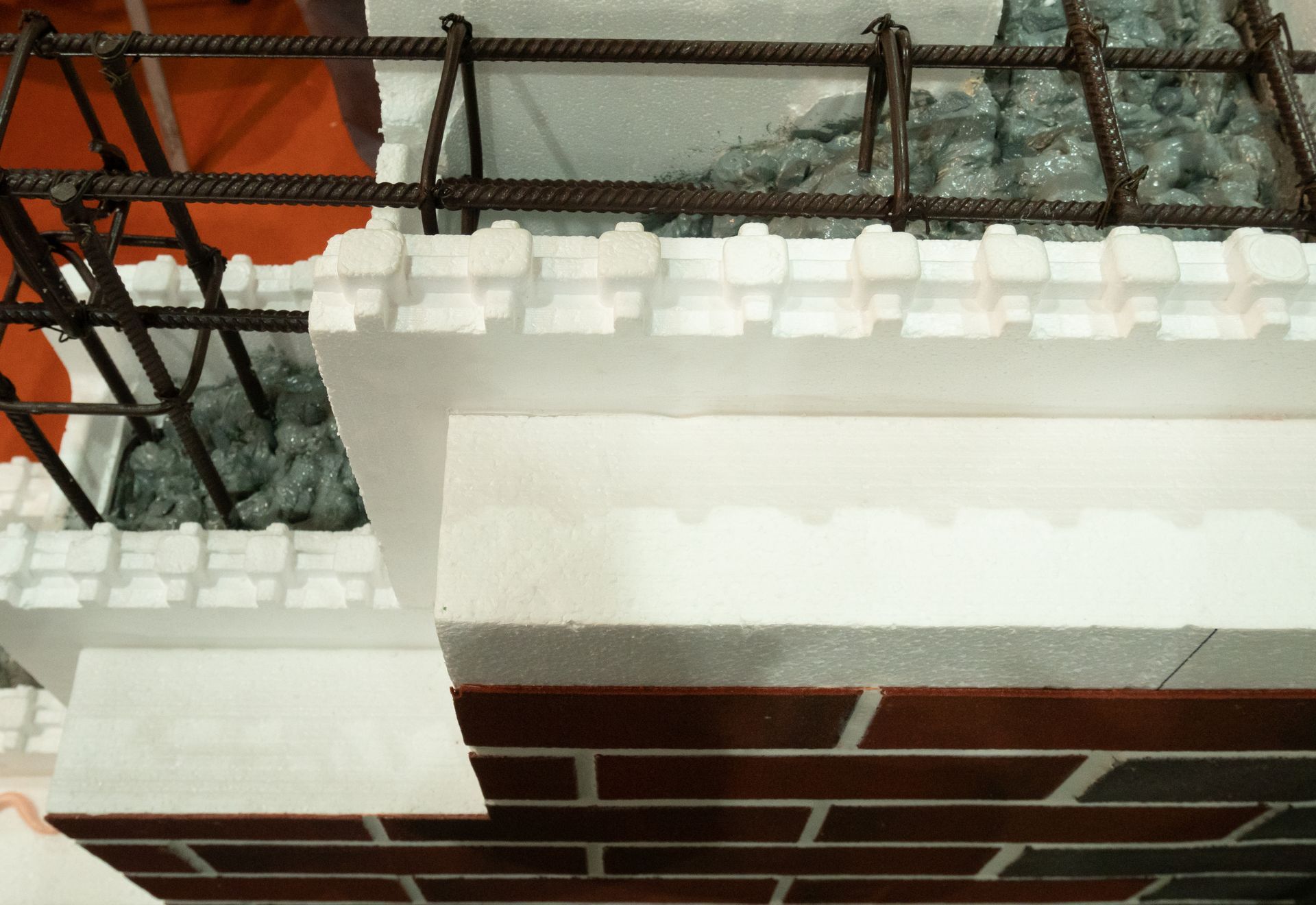
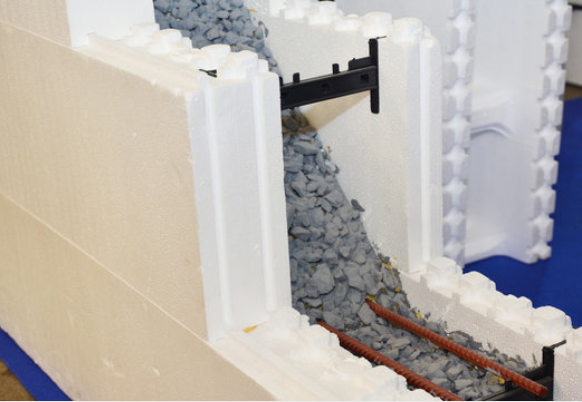

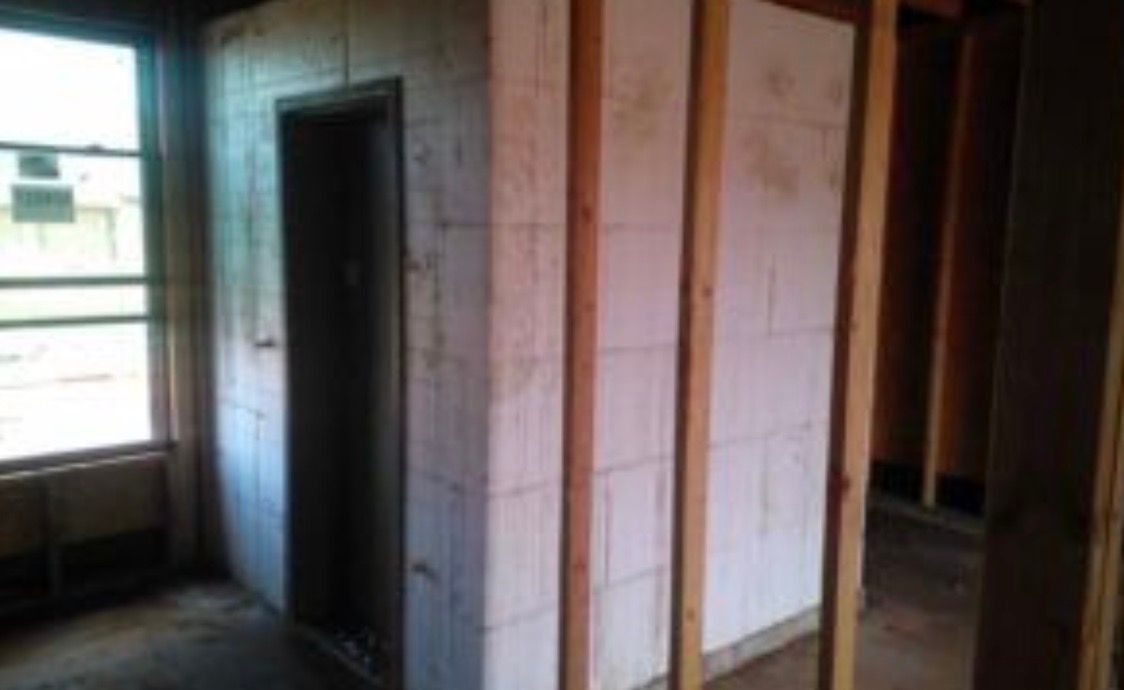
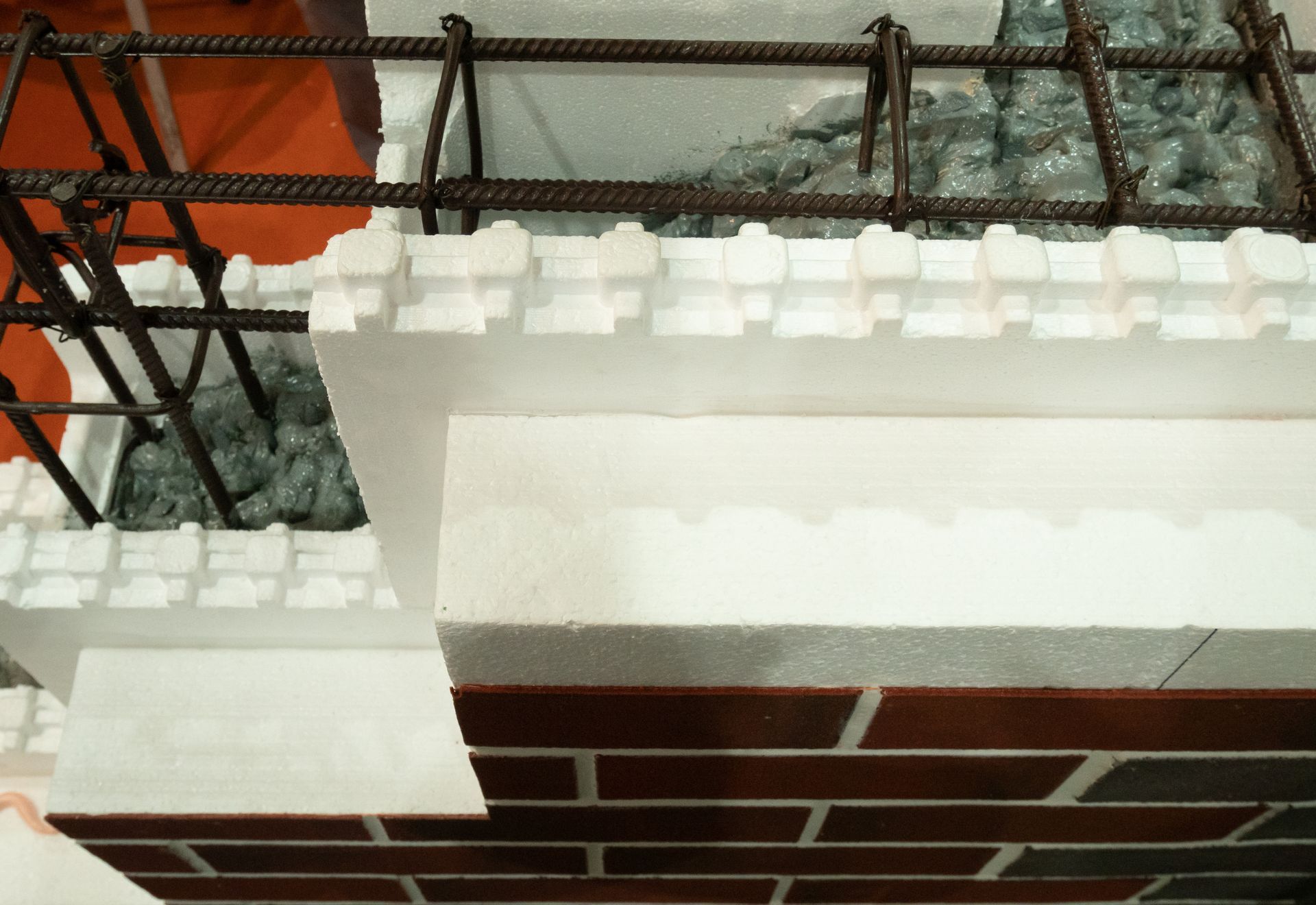
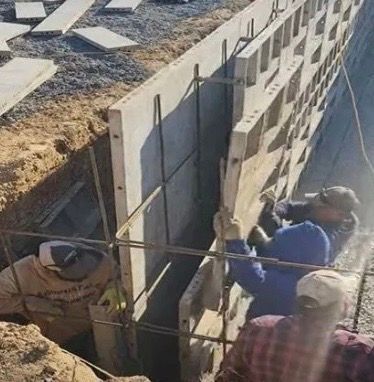
Contact Us
Feel free to reach out to BuildBlock ICF by using the contact form below.
We welcome the opportunity to connect with you and discuss how our innovative solutions can meet your needs.
Contact Us
We will get back to you as soon as possible.
Please try again later.
Copyright. Build Block ICF. All Rights Reserved.


